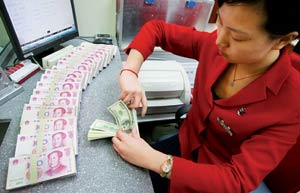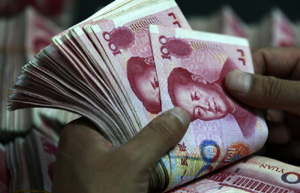Dollar should be replaced by use of several currencies in global trade and investment
The Bretton Woods system was born 70 years ago and died 44 years ago - too short a life. Nonetheless, in the post-Bretton Woods era, the world has enjoyed the benefits of floating exchange rates, but it has also experienced panics, such as the Mexican and Asian financial crises, the collapse of the dotcom bubble and the 2008 global financial crisis. We have seen technological developments nobody dreamed of, along with geopolitical power shifts and competition for world economic power.
|
 Liu Mingkang, the former chairman of the China Banking Regulatory Commission.
|
For many years, we have had globalized financial markets, with generally open capital accounts and free capital flows that provide diverse investment opportunities and funding sources. However, we have also seen that capital flows are volatile and even dangerous, particularly for small and medium-sized open economies. Since Bretton Woods broke down, there has been too much monetary and financial instability.
The economic dominance of the United States has led to the dollar's international monetary dominance. That has yielded privileges for the US in running large, sustained current account and budget deficits. Lacking a better choice, emerging markets finance US deficits in return for monetary and financial stability and as a source of safe haven assets.
Though improving, US economic numbers are neither truly better nor more stable. In addition, the US has monetized its budget deficits, which is usually a recipe for monetary and financial disaster in jurisdictions with no such currency privileges. Six years after the global financial crisis, the bubble that has not burst is likely the market for US Treasury bonds and other G7 Treasury bonds.
We face an unstable equilibrium in the international monetary system with huge risks for the global economy. We must quickly deal with these weaknesses.
1. National monetary policies should be better coordinated.
The US is reversing, or tapering, its quantitative easing policy. The markets expect the US Federal Reserve Board to raise interest rates in 2015. All things being equal, this move could cause huge cross-border capital flows. Emerging economies that have suffered from a huge dollar trap (the accumulation of dollar reserves) may experience sudden capital outflows.
Red flags have appeared. Eurozone bonds have fallen to 200-year lows and emerging markets are particularly vulnerable. We all know that fiscal and monetary stimulus with lax regulations will promote artificial growth and asset bubbles, and we also know that once these themes slow or reverse, the consequences could be significant. We need better coordination to ensure stability.
 |
 |
| Europe helps boost yuan use internationally | Top 10 most-used currencies in the world |
